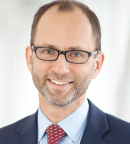In September 2017, ASCO published a new guideline in the Journal of Clinical Oncology that outlines best practices for communicating effectively with patients and their family members.1 The guideline is the result of recommendations from a multidisciplinary panel of experts in a number of fields, including medical oncology, psychiatry, nursing, hospice and palliative medicine, communication skills, health disparities, and patient advocacy, after a systematic review of medical literature on meta-analyses and randomized clinical trials data that focused on in-person communication between clinicians and adult patients with cancer. The goal of ASCO’s communication guideline is to provide oncologists with a framework of specific practices to enable them to deliver complex information to patients in a supportive manner and to build on oncology care that is both patient-centered and relationship-centered to help oncologists gain an understanding of who their patients are and what is important to them, so patients can be more active partners in their care.
When we train physicians to communicate more effectively with patients, short-term measures of burnout and empathy improve.— Timothy Gilligan, MD, FASCO
Tweet this quote
“There are a number of reasons why it was important for ASCO to undertake the development of this guideline,” said Timothy Gilligan, MD, FASCO, Co-Chair of ASCO’s Expert Panel on Patient-Physician Communications Guideline and Vice-Chair for Education and Associate Professor of Medicine at the Cleveland Clinic Taussig Cancer Institute. “One factor is there is research showing that good health-care communication has an impact on important patient outcomes, including adherence to medication use, fewer hospital stays, less aggressive treatment at the end of life, and greater patient satisfaction. There is also research showing that miscommunication leads to medical errors and poor decision-making. For all of these reasons, getting health-care communication right is part of the practice of medicine. There is a tendency to view communication as a softer part of medicine, but that is not an accurate way of looking at it.”
Developing good interpersonal skills not only benefits patients, according to Dr. Gilligan, but can also benefit oncologists by strengthening their resilience. “We have done research at my institution showing that when we train physicians to communicate more effectively with patients, short-term measures of burnout and empathy improve. We believe that part of what sustains clinicians is having a mutually meaningful and functional relationship with their patients. When we communicate empathically with our patients, build rapport, convey information effectively, and directly address patients’ and family members’ concerns, everyone has a better day, and oncologists find their work more meaningful and rewarding,” said Dr. Gilligan. “Most applicants to oncology fellowships cite the relationship between clinicians and cancer patients as a primary driver of their interest in the field. Better communication leads to better relationships and better care.”
Key Guideline Recommendations
According to ASCO’s patient-clinician communication guideline, oncologists can improve communication with their patients through the following specific practices:
- Start conversations with patients by asking what their understanding is of their disease and collaboratively set an agenda to discuss the issues that are most important to patients and family members, as well as to the clinician.
- Engage in behaviors that foster trust, confidence in the clinician, and collaboration by reviewing the patient’s medical chart in advance of the meeting; being friendly but not overly casual; making eye contact; engaging in reflective listening; getting to know the patient and how cancer has changed the patient’s life; inquiring about how the patient and family are coping and feeling; and being honest, genuine, and respectful.
- Provide diagnostic and prognostic information tailored to patients’ needs and ensure that patients understand their prognosis and treatment options, clarifying the goals of treatment, including cure vs prolongation of survival vs quality of life, and that the care goals align with the patients’ values and priorities. Oncologists should also inquire about whether the cost of care is a concern; if it is, the specific concerns should be addressed directly with the patient or the patient should be referred to a financial counselor or social worker for resources.
- Initiate conversations about end-of-life preferences early in the course of incurable illness and then revisit the discussion when there are important changes in the patient’s condition or in the course of his or her disease.
- Provide patients with all treatment options, including clinical trials or palliative care alone if appropriate. For patients with incurable cancers, discuss the option of starting palliative care simultaneously with active cancer therapy.
Empowering Patients
In addition to these steps, ASCO’s guideline recommends that communication skills training be made available to oncologists at every level of practice and that training emphasize skills practice and experiential learning using role-play scenarios conducted by trained facilitators and direct observation of patient encounters. The guideline also recommends that skills-practice exercises include structured feedback, so clinicians can learn which of their behaviors are effective and where their performance may need improvement.
“As we open up opportunities for patients to share their information with us, we can take better care of our patients. We often miss the opportunity to listen to our patients and to learn things that are helpful in taking care of them. The single most effective change we can make, in my judgment, is to talk less and listen more, so we can understand our patients better and tailor what we say to who they are and what they need from us. True patient-centered care strives to empower patients to become active participants in their care. To accomplish that goal, physicians need good communication skills and to think differently about how they talk and listen to patients,” said Dr. Gilligan. ■
DISCLOSURE: For full disclosures of the study authors, visit www.jco.ascopubs.org.
REFERENCE
1. Gilligan T, et al: Patient-clinician communication: American Society of Clinical Oncology Consensus Guideline. J Clin Oncol 35:3618-3632, 2017.


